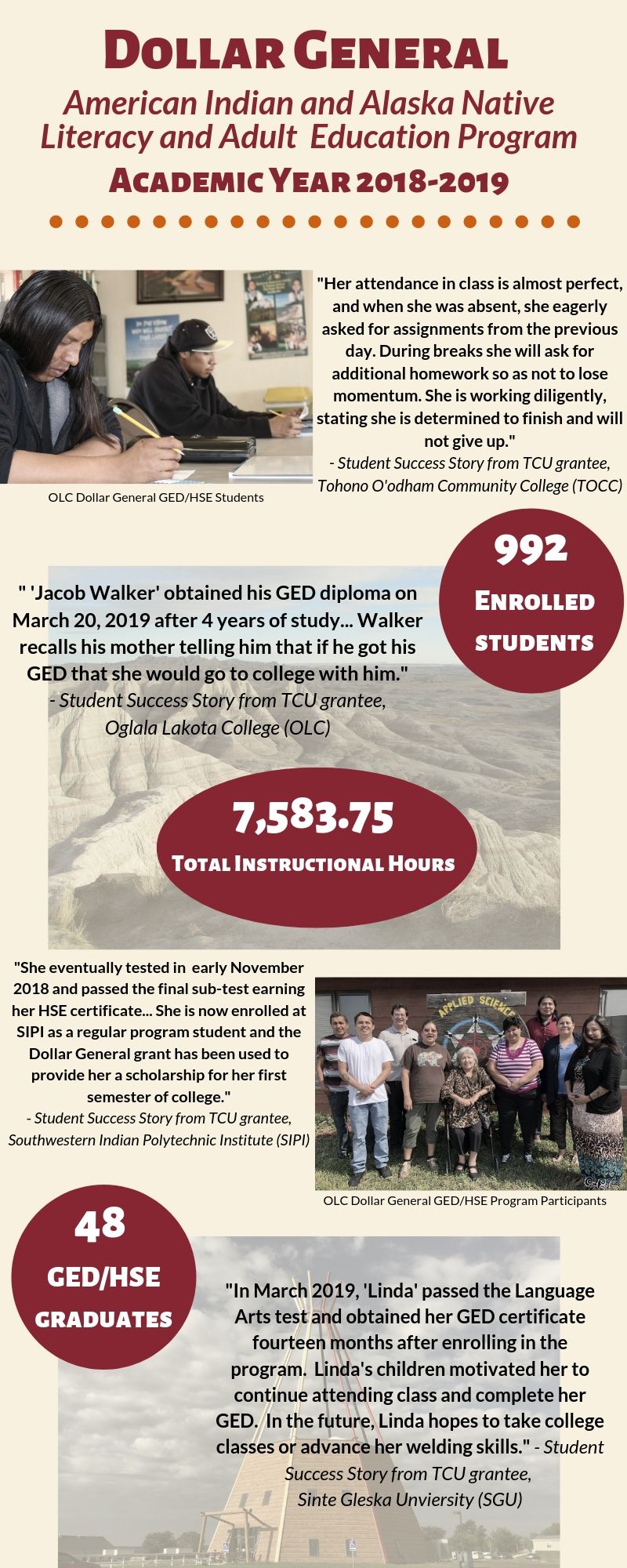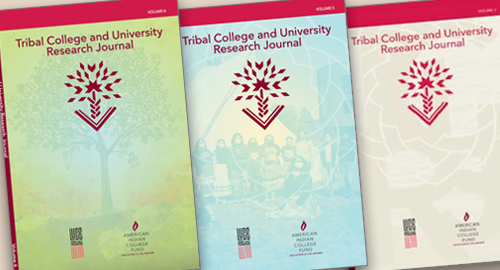
Click to view infographic and see how both quantitative and qualitative data demonstrate the impact of the Dollar General program on TCUs’ respective GED programs as well as on individuals’ work ethics, relationships, and future aspirations.
Tribal College and University (TCU) grantees of the Dollar General American Indian and Alaska Native Literacy and Adult Education Program have the common objectives of serving more GED/Highschool Equivalency (HSE) students than previous years and, ultimately, helping more American Indians obtain their GED/HSE certificates. These are the primary reasons the program exists, but the path to success is paved with meeting smaller needs and goals first.
In the 2019-2020 grant term of the American Indian College Fund’s Dollar General program, TCU grantees are aspiring to reach goals specific to their respective GED programs’ needs.
One TCU grantee needs to employ more staff to reach all six of their sites currently being served by only two fulltime instructors.
Another grantee is working to increase recruitment and advertising efforts to encourage higher enrollment and attendance.
Other TCUs aim to take their programs a step further and follow up with their GED/HSE graduates to encourage college enrollment or employment upon GED/HSE certification.
Meeting such goals is as important to the Dollar General grantees as the ultimate objectives, because their service and impact is more than awarding certificates and tracking enrollment.
TCUs take seriously the ability to have time for each student. They want and need enough instructors to reach those pursuing their GEDs. They want to provide access to learning software and practice tests, so students feel confident and capable when taking the official exam. They want GED pursuers of all ages to be excited about education. They want to celebrate individuals’ successes and to get them interested in the next step in their future, whether that be continuing their education or entering the workforce.
Education is often measured using quantitative data points to create a visible impact of programs. While this is critical, it is also important to remember the qualitative impact that can be more complex to capture – relationships that are built, dreams that are inspired, and desires for education that are awoken.
The College Fund’s mission is to increase the number of American Indians holding college degrees through investing in every stage of their education, birth to career, but its mission and vision are ultimately centered on transforming Native lives and communities to be healthy, educated, and sustainable. Likewise, the TCU grantees of the College Fund’s Dollar General program value both the quantitative impact that drives their objectives, as well as the qualitative impact that shows up in their everyday work and aspirations.
The College Fund’s Dollar General program continues to support four TCUs this grant term, including Sinte Gleska University, Tohono O’odham Community College, Oglala Lakota College, and Southwestern Indian Polytechnic Institute. As these TCUs strive to meet their goals in varying geographies, demographics, and Native communities, it is their ability to inspire a passion for education that will leave program participants with much more than a GED/HSE certificate.










